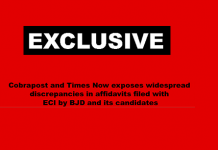Bureaucrats hardly spoke initially, but as queues got longer outside banks and ATMs went cashless, there were murmurs in the corridors of power that demonetisation was executed without much thought to details. Some officials, who were now firefighting, confided in whispers that they were not kept in the loop. A source told this newspaper that bureaucrats have now started sharing pre-demonetisation anecdotes, fearing that they may be held responsible by the political leadership for poor execution.
Those with their ear to the ground even pointed to the “subterranean propaganda” by government’s supporters of how the bureaucracy sabotaged the PM’s plan.
A senior bureaucrat, who was part of the November 8 Cabinet meeting, which approved the decision to demonetise, said little consultation took place. “The plan was already in place. We were called to be apprised about it,” a secretary of a key department, requesting anonymity, said.
Last week, Power Minister Piyush Goyal told the Rajya Sabha that the Reserve Bank of IndiaBoard of Governors took the decision, Cabinet approved it and the PM announced it. But those in the know claimed that the slot for PM’s speech, telecast at 8 pm on state broadcaster Doordarshan, had already been booked by the time the formal Cabinet meeting started around 6.30 pm.
“A bit of foresight would have helped. Isn’t it common sense that this is sowing and wedding season? The plan is indeed unquestionably revolutionary but better preparedness could have avoided such teething troubles,” said an IAS officer in a core economy department.
The decision was a bolt from the blue for most ministers as well. Janata Dal (United) leader Sharad Yadav said in the Rajya Sabha recently that Finance Minister Arun Jaitley was made aware of the decision at a very late stage. “If you knew, you would have surely advised against it,” Yadav said. Jaitley permitted himself a smile but didn’t get up to correct his “old friend”.



























